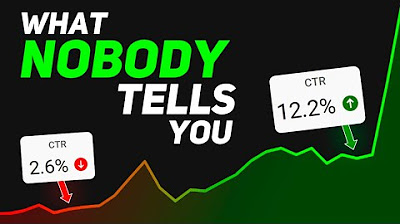The Best Language Learning Apps (and Why Most Don’t Work)
Summary
TLDRThis video offers a comprehensive guide to mastering foreign languages through various apps. It begins with Duolingo for beginners, assessing commitment and enjoyment. For overall language learning, it critiques visual apps and recommends audio-based ones like Language Transfer and Pimsleur. Anki is praised for vocabulary building through customizable flashcards. Gloss is highlighted for its audio flashcard system, while HelloTalk and Preply are suggested for conversation practice. Beelingua is recommended for reading skills with parallel texts. Lastly, Google Translate's linguistic AI is endorsed for active listening and learning through podcasts.
Takeaways
- 🎓 The speaker graduated college without knowing any foreign languages but now speaks multiple languages fluently.
- 📱 The speaker recommends using language learning apps to facilitate the learning process.
- 🔍 Duolingo is suggested for beginners to answer important questions about their commitment and enjoyment of language learning.
- 🏃♂️ Audio-based apps are recommended for language learning because they allow for multitasking and can be more engaging.
- 🌐 Language Transfer and Pimsleur are highlighted as effective audio-based language learning apps.
- 📚 Anki is praised for its flashcard system and the ability to download pre-made decks for efficient vocabulary building.
- 🎧 Gloss is introduced as an audio flashcard system that helps with vocabulary retention through listening.
- 🗣️ To improve speaking skills, the speaker suggests language exchange platforms, such as HelloTalk and Preply, for practical conversation practice.
- 👀 Beelingua is recommended for reading practice, offering parallel texts to improve reading skills in a new language.
- 🌐 Google Translate is useful for becoming fluent by actively looking up unknown words and phrases while listening to podcasts.
Q & A
What is the speaker's language learning journey like?
-The speaker started without any foreign language skills and now speaks fluent French, Spanish, Arabic, and Mandarin.
What is the recommended app for absolute beginners in language learning?
-Duolingo is recommended for absolute beginners as it helps answer important questions about commitment and enjoyment of learning a language.
Why is Duolingo not the best for long-term learning according to the speaker?
-Duolingo is visual and requires constant screen engagement, which can become boring and lead to distractions over time.
What type of app does the speaker suggest for language learning to avoid distractions?
-The speaker suggests using audio-based apps because they allow for multitasking and can be more enjoyable.
Which two audio-based apps are mentioned for language learning?
-The two audio-based apps mentioned are Language Transfer and Pimsleur.
What is the main drawback of Language Transfer according to the speaker?
-The main drawback of Language Transfer is the limited number of lessons, with even the most complete courses having less than 12 hours of content.
How does Pimsleur differ from Language Transfer?
-Pimsleur offers more languages, more content, and supplemental tools like vocabulary quizzes and flashcards.
What app is recommended for building vocabulary through flashcards?
-Anki is recommended for building vocabulary as it allows for the creation of custom flashcards and the use of shared decks.
What is the issue with flashcards according to the speaker?
-Flashcards can become tedious over time, and the speaker suggests using a flashcard listening hybrid platform for sustained learning.
Which app combines flashcards with listening to aid in language learning?
-Gloss is the app that combines flashcards with listening by providing phrases in English followed by a native speaker's pronunciation in the target language.
What is the recommended method for improving speaking skills in a new language?
-The recommended method for improving speaking skills is through language exchange platforms where you can converse with native speakers.
What are the two approaches to using language exchange platforms mentioned in the script?
-The two approaches are the free method, where you exchange teaching with another person, and the paid method, where you pay an hourly rate for lessons.
Which app is suggested for improving reading skills in a new language?
-Belinga is suggested for improving reading skills as it provides parallel versions of texts in English and the target language.
How does the speaker recommend becoming fluent in a new language?
-The speaker recommends becoming fluent by exposing oneself to the new language as much as possible, such as by listening to podcasts and using Google Translate to look up unknown words.
Outlines

This section is available to paid users only. Please upgrade to access this part.
Upgrade NowMindmap

This section is available to paid users only. Please upgrade to access this part.
Upgrade NowKeywords

This section is available to paid users only. Please upgrade to access this part.
Upgrade NowHighlights

This section is available to paid users only. Please upgrade to access this part.
Upgrade NowTranscripts

This section is available to paid users only. Please upgrade to access this part.
Upgrade NowBrowse More Related Video

Ejaan (Bagian 2) | Penggunaan tanda baca & penulisan unsur serapan

How to Make the BEST YouTube Thumbnails!

18 Yaşından Küçük İnternetten Para Kazanmanın 7 Yolu!

Materi Bab 1 Demi Keluarga(Teks Deskripsi) - Bahasa Indonesia Kelas 9 SMP | Kurikulum Merdeka

1st year to 4th year college roadmap to get placed wit 15+ LPA | How to start coding in 2024 🚀

Kenapa Kita Perlu Belajar Bahasa Asing?
5.0 / 5 (0 votes)